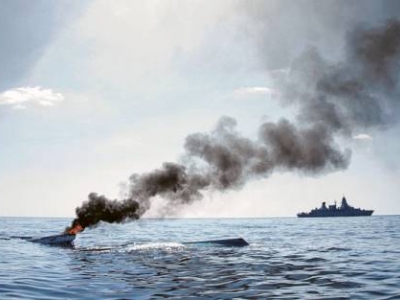The issue of piracy in the Gulf of Guinea was raisedat the 66th General Assembly annual debate
Secretary-General Ban Ki-moon urged States and regional organizations in West Africa’s Gulf of Guinea to develop a comprehensive and integrated strategy to combat maritime piracy, which he said threatens to hinder economic development and undermine security in the region.
“The threat is compounded because most Gulf [of Guinea] States have limited capacity to ensure safe maritime trade, freedom of navigation, the protection of marine resources and the safety and security of lives and property,” Mr. Ban told the Security Council during an open debate on piracy in the Gulf of Guinea.
He said he was aware of plans by the Economic Community of West African States (ECOWAS) convene a summit on the issue and the intention of the Economic Community of Central African States (ECCAS) to hold an international conference.
Let us therefore work together to forge a balanced and coherent strategy that addresses the roots of the problem as well as deterrence on land and at sea.
“I also encourage them to build on the existing Memorandum of Understanding on maritime law enforcement developed by the Maritime Organization of West and Central Africa and the [United Nations] International Maritime Organization [IMO) with the support of the UN agencies.”
The Secretary-General recalled that he had in August made a decision to send a UN assessment mission to the Gulf of Guinea region next month to examine the scope of the threat, as well as the capacity of Benin and of the West African sub-region to ensure maritime safety and security.
The mission is expected to make recommendations on an anti-piracy strategy, including in the broader context of organized crime and drug trafficking. It will comprise representatives of the UN Departments of Political Affairs and Peacekeeping Operations, the UN Offices for West Africa and Central Africa, the UN Office on Drugs and Crime (UNODC) and IMO.
It will work in close consultation with national authorities, the European Union and other international partners.
“Piracy transcends national boundaries and economic interests,” said Mr. Ban. “It has a negative impact on West Africa’s trade with the rest of the world, especially with its principal trading partners in the Americas, Asia and Europe.”
He noted that the recent deployment of naval vessels to support anti-piracy operations in the Gulf of Guinea was a pointer to the readiness of the region’s States and their partners to tackle the problem and urged other UN Member States to join the efforts.
“As we have learned from our experience in Somalia, we must approach the issue in a holistic manner, focusing simultaneously on security, the rule of law and development. Responses that fall short of these requirements will only exacerbate the problem.
‘Let us therefore work together to forge a balanced and coherent strategy that addresses the roots of the problem as well as deterrence on land and at sea,” said Mr. Ban.
Source: UN News Centre






























































